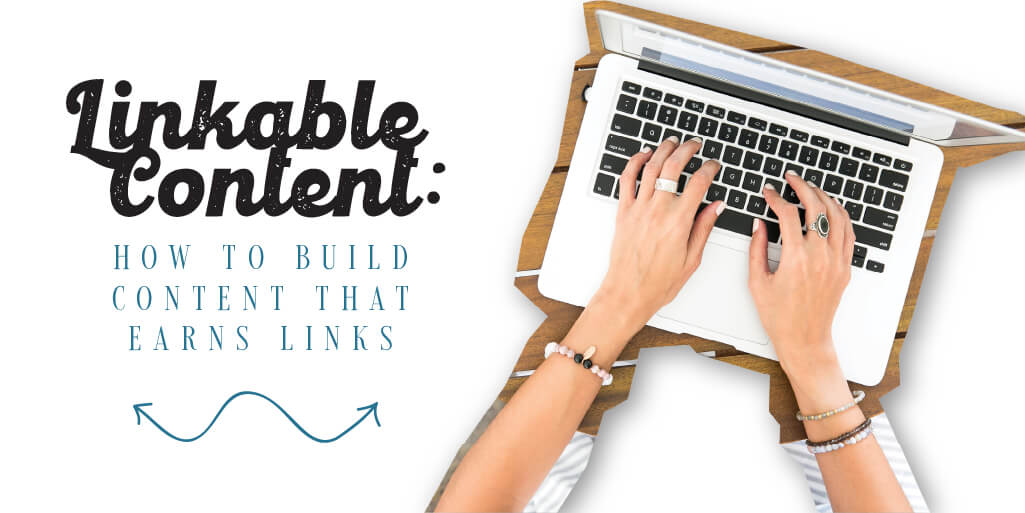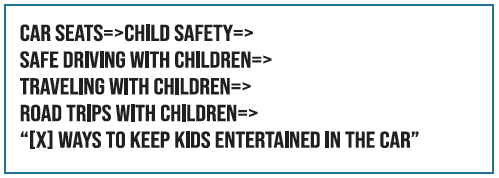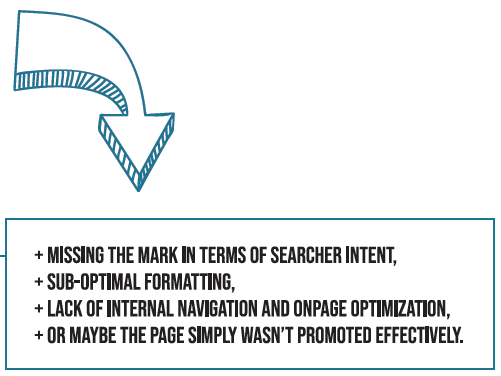 Do you want more backlinks pointing to all your pages? Of course you do.
Do you want more backlinks pointing to all your pages? Of course you do.
But do all your pages deserve more backlinks? Are they all link-worthy? Do they all need to be linkable? Probably not, but that’s okay!
Every page on your site has (or, at least, should have) a specific purpose or goal. Some pages inform your audience and customers about relevant topics that are important to your business. Other pages might compare specifications between your various products or against competitors. And yes, some pages should have the primary goal of attracting relevant, valuable links to your website.
However, it is rare that a page can serve all or even multiple goals for your business because different goals are tied to different stages of your marketing funnel and the audience at each stage wants different things.
For example, a person at the top (discovery) stage of your funnel is looking for information, whereas someone near the bottom is ready to make a purchase. You shouldn’t be selling to the person who just wants to learn more, and you wouldn’t want to impede a potential conversion with unnecessary information. But you can create two separate pages that serve each of these goals effectively.
Just as you have pages that don’t convert people (but are still important), you will also have pages that don’t earn many links. Specifically, your product or category pages will have limited link opportunity.
So, to support these pages’ visibility in search, you need linkable content that can accumulate external link equity that will then pass that equity along through internal linking.
But how do you build these linkable pages?
This post will teach you how to build content that earns links to boost your entire site in the search rankings.
What Makes Content Linkable?
Before you can create linkable content with regularity, you need to understand what makes a page link-worthy.
First and foremost, linkable pages have broad appeal. Think about it — the page needs to be relevant to a person (or their audience) for them to consider linking, so the more people your page is relevant to, the more link opportunities you have.
Since broad appeal is a key aspect of linkable pages, most linkable content will exist at the top portion of your marketing funnel, serving informational searcher intent. However, broad topics are typically covered the most, so to make your page uniquely linkable, it needs to be better than other pages covering the same topic.
Some ways to add link-worthiness to your page include:
- citing trustworthy sources from your space and sourcing helpful information from industry-leading outlets.
- sharing original data or research that benefits your industry and audience.
- building your page in an easy-to-follow, digestible format with headers and sections, anchor links to move around the page easily, bullet lists for easy scanning, images to break up long text blocks, etc.
- multimedia content that includes videos, images, interactive tools and design, and more alongside text-based content to appeal to the various preferences and intent of users.
Baking these attributes into your page will increase the link opportunity you have once the page is published and ready to be promoted.
There are several ways to build linkability into your pages, but the most important thing to ask yourself when creating linkable content is:
“What audience does this serve, and how big is that audience?”
If your page addresses a key issue for a large audience, people are going to link to it.
How to Generate Linkable Content Ideas
With a firm understanding of what makes a page link-worthy, you can begin researching and brainstorming linkable topics.
Audience Research
Begin your research with your core audience — this is a natural starting place since you should already have a general profile built out for these people. To find linkable topics they would be interested in, start with your products or services and work outward to broader, but still relevant, topics. For example, if you sell children’s car seats, a natural progression of topics would be:

Now you’ve found a topic that has broad appeal, would provide valuable information for readers, and is relevant to your products. Repeat this process for your various products and services and you should end up with a nice list of potentially linkable topics. However, before you invest in creating content for these topics, research similar pages and analyze the quantity and quality of their backlinks — you can use a backlink tool like Majestic to analyze links.
Competitor Research
Another potential source for linkable content ideas are your competitors.
To find which pages are earning links for the competition, you’ll need a backlink tool again. Using a backlink tool, you can uncover linkable topics that your competitors are covering to earn links. If you don’t have pages for these topics, it’s likely a good idea to create them as they have proven linkable. Again, dig deep into your competitor’s backlinks before creating pages — if the links pointing to your competitor’s page are low-quality, it isn’t a linkable topic and likely they are using manipulative tactics or buying those links.

You can use these strategies to generate potential ideas, but make sure you research the sites that are linking to the types of content you’re planning to create to confirm they’re legitimate websites with real audiences.
Repurpose Underpromoted Pages
Finally, you might be able to leverage existing pages on your site for link-worthy ideas.
Check your existing pages’ backlinks (again, you can use a tool like Majestic or Ahrefs) to find diamonds in the rough that show potential for links. If a page has a handful of links, it’s worth reviewing that page to determine why it hasn’t secured more. It’s possible there is a simple explanation for why this page isn’t earning as many links as it should. Some of these reasons include:

If you find these pages, typically all it takes are a few slight tweaks and adjustments to increase linkability and suddenly you have a new asset to promote.
Recap
Whether you hire an SEO company or build the pages yourself, you need linkable content because these pages will earn most of the backlinks to your website, supporting search visibility for your site as a whole. To recap, linkable content:
 And to generate linkable content ideas, you should research:
And to generate linkable content ideas, you should research:

Hopefully this guide gives you all you need to start producing the types of pages that will sustainably earn worthwhile links for your website. See you next time!


